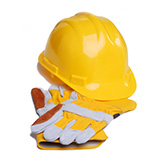June 30, 2023 | Posted by MICRO

Logic, and the Delaware State law, say that a landlord’s property maintenance obligation involves repairing leaking pipes, windows, and roofs so a healthy and livable environment is ensured.
There is an interesting situation. Although the behavior of the tenant contributed to the appearance of the mold, the law holds the landlord responsible for remediating the problem.
Landlords should check their buildings for mold regularly, not only to protect their investment from damages caused by mold but also to avoid claims of negligence.
Landlord’s responsibility for mold in Delaware State
As I have mentioned in the introductory paragraph, the law holds the landlord responsible for mold remediation even if the mold growth was caused by the tenant’s negligence.
Because of this, advocates usually suggest landlords review the policies with tenants in order to control moisture and document anything that may prove that the tenant has caused the mold. A landlord can use this to charge the tenants for the cost of removing the mold.
The longer you wait, the more the mold grows, and with that, the chances of someone getting sick because of the toxic fungus are greater.
Tenant responsibilities in Delaware
Apart from paying rent in a timely manner, tenants in Delaware State have the following responsibilities too:
- Always keep the apartment in a safe and habitable condition;
- Keep fixtures clean and sanitary;
- Use all fixtures and appliances in a reasonable manner;
- Make small repairs and maintenance;
- Not negligently or deliberately destroy the dwelling unit;
- Not remove or tamper with the smoke detector or carbon monoxide detector;
- Not disturb other tenants or neighbors.
How long does the landlord have to fix the mold problem?
Delaware State law is very precise on this issue. Landlords in Delaware are required to keep the unit in habitable condition and must also make requested repairs within 15 days.
If they don’t, then tenants have the right to withhold up to two-thirds of rent until essential services are supplied or make the repairs themselves 30 days after the notice was given to the landlord and deduct the cost from the following month’s rent as long as it does not exceed $400 or half a month’s rent.
Mold disclosure law in Delaware State
If the mold is present in the rental property and the landlord makes a prior disclosure about it but the tenant decides to rent the property and then tries to sue the landlord for the cost to remedy the mold, he will fail.
Delaware disclosure law says: “The buyer shall not have a cause of action against the seller, agent or subagent for material defects in the condition of the residential property to the buyer prior to the buyer making an offer to purchase”.
Can you break the rental lease in Delaware due to mold?
If you as a tenant can prove that mold poses a threat to your health you can break the lease by vacating earlier. This depends on whether or not the landlord can fix the problem or release you from your rental agreement without penalty.
If the tenant has done everything such as using a ventilation system during cooking and hot showers, he can’t be held responsible for a mold problem. If a tenant can prove that they can’t live there because of mold then the landlord needs to fix the problem as soon as possible.
The bottom line is if the landlord can’t fix the problem then they should release the tenant from the rental agreement.
Can a Delaware State tenant seek justice in court?
This opportunity is available to tenants in Delaware State. You can file the lawsuit only if you can prove that your landlord breached his/her duty to protect your safety and health and violated the rental agreement. There are also possibilities to collect damages for medical bills, lost wages, loss of property value, etc.
Suing for mold in Delaware State could potentially be successful if the mold damage and exposure were caused by negligence on behalf of the landlord.


